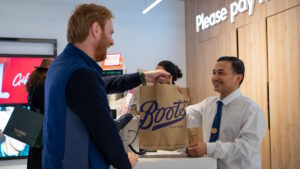Sustainability is a top priority for most consumers when it comes to shopping, with a number of them willing to pay more for products or wait longer for deliveries if it means being greener, according to research from supply chain management platform Blue Yonder.
The survey of 1,000 US adults found that 78% of people report sustainability concerns as being very or somewhat important to them when choosing to buy a product or shop with a retailer. Moreover, 70% of respondents said they had shopped at a retailer promoting their products as sustainable at least once in the last six months.
Interestingly, 40% of consumers would pay up to an additional 5% on products or services, while 25% would pay be willing to pay an additional 10% or more.
When it comes to deliveries, 83% of consumers are willing to delay the arrival of their packages if there is an incentive to do so. However, only 23% of these consumers would be willing to delay the arrival of their delivery by a week or more. Nonetheless, 47% of respondents would be likely or very likely to pay more for greener shipping options.
“We’re encouraged to see that the majority of consumers take sustainability into account when making purchasing decisions,” said Saskia van Gendt, Chief Sustainability Officer at Blue Yonder. “It’s especially promising that so many respondents are willing to spend more for sustainable products, given that price concerns, exacerbated by the ongoing challenge of inflation, have marked conversations around consumer behaviour over the last year.
“Their willingness to spend more should send a clear message to brands and retailers that investing in sustainable solutions and practices is worthwhile, not only for the planet but also for maintaining consumer loyalty and trust.”
Respondents also want to see brands and retailers reducing food and/or inventory waste (61%) and using recycled content and/or packaging (61%).
Though consumers are demanding more from the brands they interact with, they aren’t overly trusting of the ability of the brands to deliver. Nearly half (48%) of respondents feel they can only “sometimes” trust a brand’s sustainability claims, depending on its message, brand reputation, and history. Furthermore, 35% of respondents don’t trust brands’ claims at all, with 21% citing the need to do their own additional research and 14% believing that brands tout sustainability regardless of whether it aligns with their actions.
“Consumers are looking closely at exactly how brands are executing on their sustainability goals,” said van Gendt. “With more than one-third (35%) of respondents reporting that they don’t trust brands’ sustainability claims, it’s more important than ever for companies to have full visibility into their supply chain operations so they can back up their sustainability claims with tangible data to strengthen consumer trust.”












